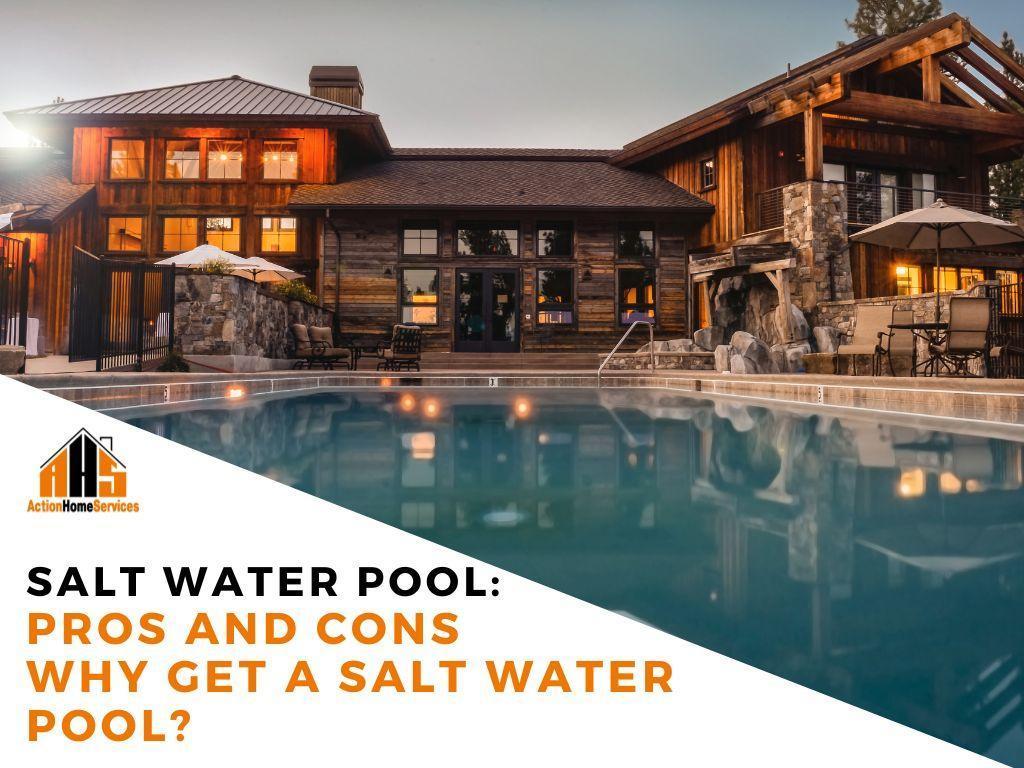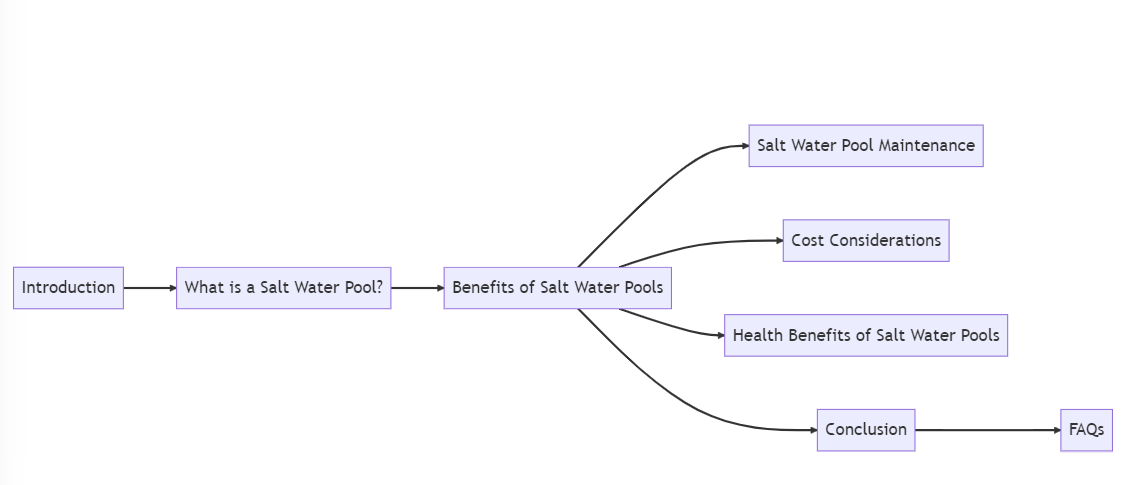
| Outline |
|---|
| Introduction |
| What is a Salt Water Pool? |
| Benefits of Salt Water Pools |
| Salt Water Pool Maintenance |
| Cost Considerations |
| Health Benefits of Salt Water Pools |
| Conclusion |
| FAQs |
Why Get a Salt Water Pool
Introduction
Are you considering installing a pool in your backyard? If so, you may want to explore the benefits of a salt water pool. Salt water pools have been gaining popularity in recent years due to their numerous advantages over traditional chlorine pools. In this article, we will delve into the reasons why getting a salt water pool might be a fantastic choice for you and your family.
What is a Salt Water Pool?
A salt water pool, also known as a saline pool, is a type of swimming pool that uses a salt chlorinator system to sanitize the water. Instead of adding chlorine directly, a salt water pool generates chlorine from salt through a process called electrolysis. This means that you won't need to handle or store harsh chemicals, as the pool's system creates the necessary chlorine naturally.
Benefits of Salt Water Pools
1. Reduced Chemical Usage
One of the significant advantages of a salt water pool is the reduced dependency on chemical additives. While chlorine is still present, it is generated through electrolysis, resulting in a lower concentration and milder effect on swimmers. This can be beneficial for those with sensitive skin or allergies to traditional pool chemicals.
2. Softer Water
Unlike traditional chlorinated pools, salt water pools have softer water. The salinity level is much lower than that of the ocean, making the water gentler on your skin and eyes. Swimmers often report a more enjoyable experience with less skin irritation and dryness.
3. Minimal Chlorine Odor
Chlorine has a distinct smell that is often associated with swimming pools. However, salt water pools have a significantly reduced chlorine odor. This can enhance the overall swimming experience and make spending time by the pool more pleasant for you and your guests.
4. Cost Savings in the Long Run
While the initial installation cost of a salt water pool may be slightly higher than that of a traditional pool, there can be long-term cost savings. With a salt water pool, you won't need to purchase and store chlorine, which can add up over time. Additionally, the extended lifespan of pool equipment due to reduced chemical corrosion can contribute to cost savings in the long run.
Salt Water Pool Maintenance
Maintaining a salt water pool is generally simpler compared to a traditional pool. However, it's important to note that salt water pools do require some maintenance tasks. Regular monitoring of the salt level and pH balance is necessary to ensure optimal water quality. Additionally, the salt cell may require periodic cleaning to maintain its efficiency.
Cost Considerations
When deciding whether to get a salt water pool, it's essential to consider the initial cost and ongoing expenses. While the upfront investment may be higher than a traditional pool, the long-term cost savings in terms of chemical purchases and equipment longevity can make a salt water pool a cost-effective choice over time.
Health Benefits of Salt Water Pools
Aside from the unique advantages mentioned above, salt water pools offer several health benefits. The milder chlorine levels and softer water can be more suitable for individuals with respiratory issues or skin sensitivities. Salt water pools are also believed to have a soothing effect on the skin, potentially helping with conditions like eczema or psoriasis.
Conclusion
Investing in a salt water pool can provide you and your family with a more enjoyable and refreshing swimming experience. With reduced chemical usage, softer water, and cost savings in the long run, a salt water pool offers numerous benefits. Remember to weigh the initial costs and ongoing maintenance requirements before making your decision. Whether you're seeking a more eco-friendly option, improved skin health, or a chlorine-free swimming experience, a salt water pool might be the perfect fit for your backyard oasis.
FAQs
1. Can I convert my existing chlorine pool into a salt water pool?
Yes, it is possible to convert an existing chlorine pool into a salt water pool. However, it's important to consult with a professional to ensure proper installation and adjustment of the equipment.
2. How often should I check the salt level in my salt water pool?
It is recommended to check the salt level in your salt water pool regularly, ideally every one to two weeks. This will help maintain the proper salinity level for optimal chlorine generation.
3. Will a salt water pool damage my swimsuits or pool equipment?
When properly maintained, a salt water pool should not damage your swimsuits or pool equipment. However, it's still advisable to rinse off swimsuits after swimming and perform routine maintenance on pool equipment to ensure longevity.
4. Do salt water pools require less maintenance than traditional chlorine pools?
Salt water pools generally require less maintenance than traditional chlorine pools. However, regular monitoring of the salt level, pH balance, and cleaning of the salt cell are still necessary to ensure optimal performance.
5. Can I swim in a salt water pool if I have sensitive skin?
Many individuals with sensitive skin find salt water pools more suitable due to the lower chlorine concentration and softer water. However, it's best to test your tolerance and consult with a dermatologist if you have specific concerns.



